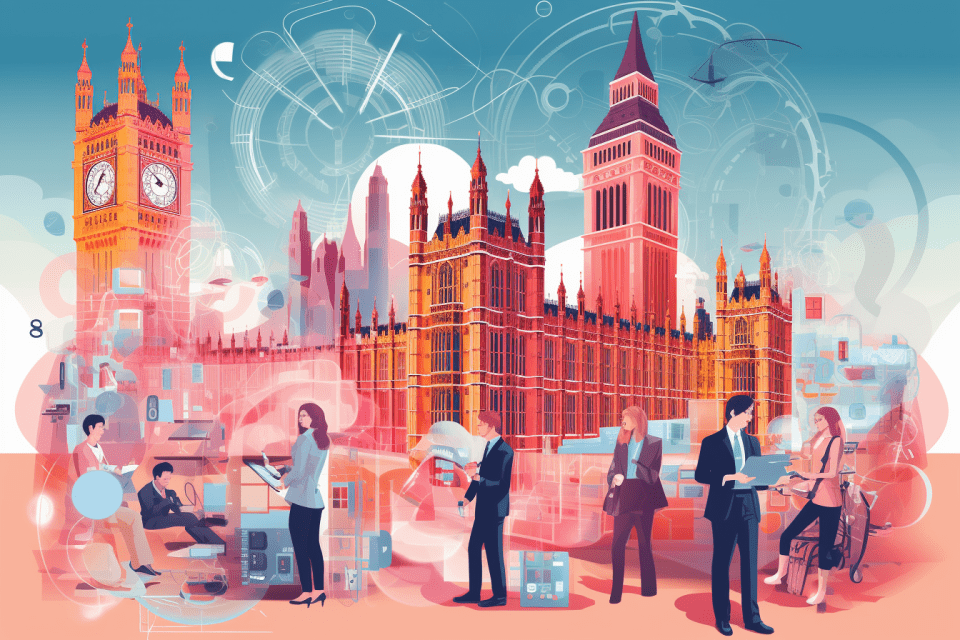The Rise of Generative AI in the UK Public Sector
The integration of Generative AI (GenAI) into the UK public sector has been significantly accelerating, reshaping how public services operate. A study conducted by the Alan Turing Institute reveals that GenAI usage is already widespread within the public sector, with professionals actively incorporating it into their work.
Understanding Generative AI
Generative AI refers to artificial intelligence systems capable of creating new content, such as text, images, or data, based on specific inputs or prompts. These systems use advanced algorithms, often based on machine learning techniques like deep learning, to analyze patterns, structures, and relationships in large datasets. By learning from this data, GenAI can generate outputs that are novel yet realistic, aligning with the context and parameters set by the user.
GenAI has a wide range of applications, from drafting emails and reports to creating educational materials and aiding in decision-making processes. Its flexibility and ease of use have made it accessible to professionals across various sectors.
Impact on the Public Sector
GenAI operates by augmenting human capabilities, automating repetitive or time-consuming tasks, and enhancing creativity and productivity, rather than replacing human input. In the public sector, its adoption can significantly impact operational efficiency and service delivery.
Healthcare, for instance, has seen benefits from GenAI in predictive analytics and resource allocation systems, while planning and development leverage spatial analysis. The widespread deployment of GenAI could potentially increase productivity, especially considering the high bureaucratic workload in the sector.
The Role of GenAI in the UK Public Sector
Statistics indicate that GenAI usage is rapidly growing in the UK public sector. Early 2023 data showed that 8.2% of global company employees used ChatGPT, with a higher percentage in the UK. The Department for Education also reported various uses of GenAI by teachers, and a Canadian Federal Public Service survey found 11.2% usage for work purposes.
Despite the UK government’s guidance on GenAI usage, there is still a lack of awareness and clarity among professionals. The guidance focuses on risks like data sensitivity, bias, and misinformation, but also encourages curiosity about new technologies. The effectiveness and awareness of sector-specific guidance remain uncertain.
Survey Findings
The study conducted by the Alan Turing Institute surveyed 938 public service professionals from various sectors. GenAI usage surpassed other AI forms in all surveyed professions except emergency services. University and school professionals reported the highest uptake, with lower levels in NHS, emergency services, and social care.
GenAI users showed a high level of trust in AI technology, understanding its operation, and optimism about its future role in enhancing productivity. However, there is still a lack of clarity on accountability for GenAI outputs. Most respondents were not concerned about AI replacing their jobs and were optimistic about AI improving public services, while acknowledging missed opportunities in AI utilization.
Conclusion
Generative AI is making significant inroads in the UK public sector. Its bottom-up adoption suggests enhanced personal agency in its use, meeting diverse professional needs. However, challenges like the lack of clear guidelines and responsibility, as well as varying public attitudes towards AI, hinder its full potential. The future of the public sector with GenAI hinges on balancing these aspects and possibly redefining productivity and bureaucratic efficiency.
Image source: Shutterstock

